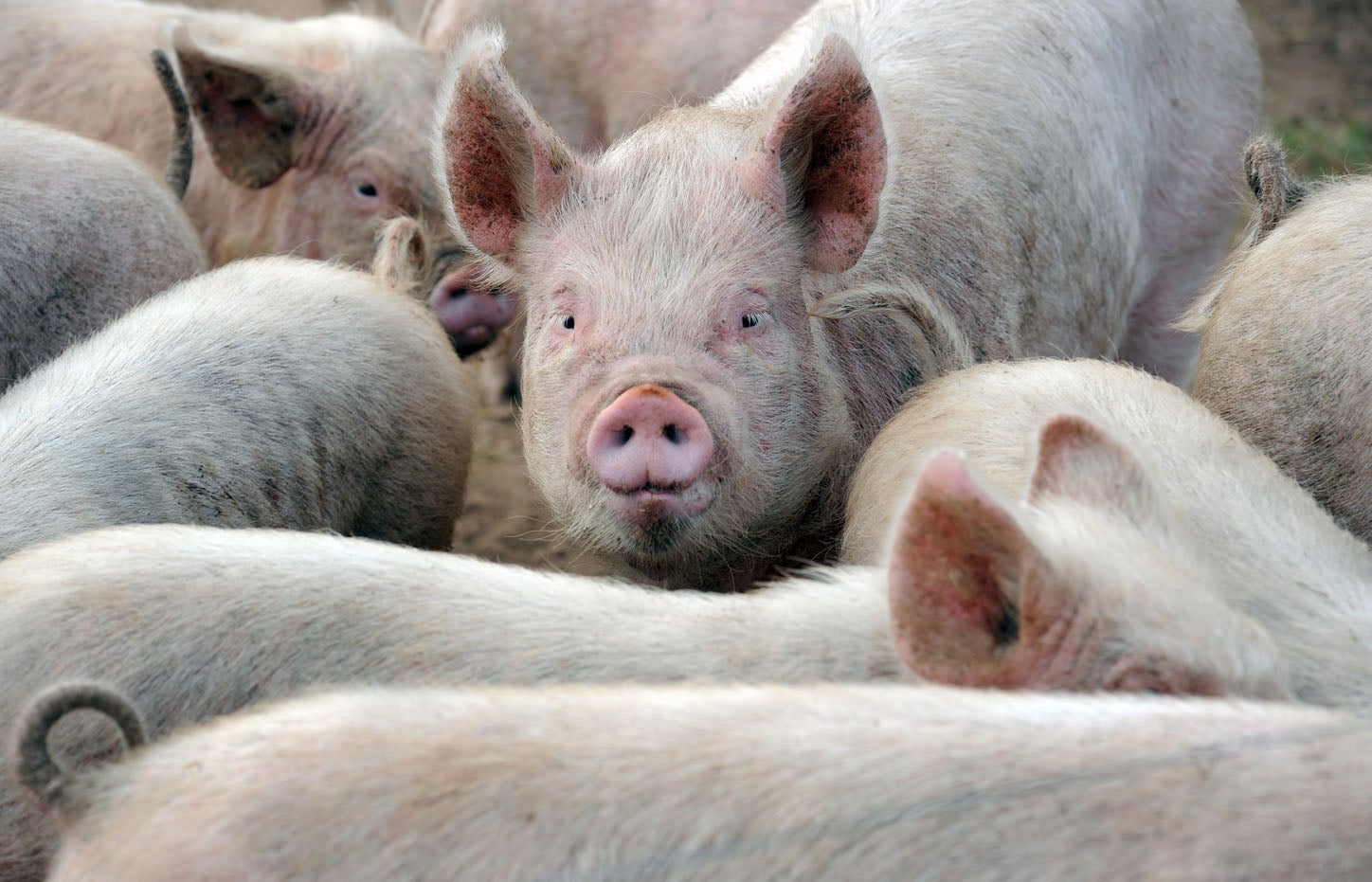Pigs may be culled because of staff shortages, meat industry warns
It could result in perfectly good meat going to waste, says National Pig Association

Your support helps us to tell the story
From reproductive rights to climate change to Big Tech, The Independent is on the ground when the story is developing. Whether it's investigating the financials of Elon Musk's pro-Trump PAC or producing our latest documentary, 'The A Word', which shines a light on the American women fighting for reproductive rights, we know how important it is to parse out the facts from the messaging.
At such a critical moment in US history, we need reporters on the ground. Your donation allows us to keep sending journalists to speak to both sides of the story.
The Independent is trusted by Americans across the entire political spectrum. And unlike many other quality news outlets, we choose not to lock Americans out of our reporting and analysis with paywalls. We believe quality journalism should be available to everyone, paid for by those who can afford it.
Your support makes all the difference.Thousands of healthy pigs may be culled if the government does not step in and tackle labour shortages at Britain’s slaughterhouses and processing plants, meat producers have warned.
The National Pig Association (NPA) estimated that around 70,000 pigs that should have already gone to slaughter remain on farms – with that number rapidly rising each week.
Major meat processors have reduced the number of pigs they slaughter each week by about a quarter, the trade body said, due to a lack of staff.
If the situation is not resolved within a few weeks, the NPA warned that it will result in “healthy pigs having to be destroyed and perfectly good meat going to waste”, as farms have limited room available to house the animals.
Keeping the pigs on farms is causing additional costs for businesses, as well as piling pressure onto staff. “The knock-on effect for farmers is the need to buy more feed and straw, both of which are currently very expensive, and their prices will be penalised because the pigs then go to slaughter overweight,” an NPA report on labour availability said.
The British meat-processing industry is currently missing at least 15 per cent of its workers, according to the British Meat Processors Association (BMPA). The sector, which disproportionately employs non-British staff, has taken a hit over the last year, as many workers who returned to their home countries during the pandemic have not returned to the UK.
The meat-processing industry is not the only sector to be affected – there is an acute shortage of lorry drivers among other professions. An independent poll for PoliticsHome recently found that the public would back the government in relaxing immigration rules for European lorry drivers as a way of dealing with the shortfall.
However, there are some unique pressures on farms, the NPA stressed. “Unlike other parts of the food supply chain, farms cannot temporarily shut down or reduce hours,” the trade body said. “The pigs need to be cared for and fed every day of the year, which makes staffing levels absolutely critical to the successful management and sustainability of their business.”
Although a review of the shortage of occupation list, which sets out jobs where overseas workers can apply for visas, is not due until next year, several departments are pushing for it to be brought forward – and are reportedly being met with opposition from the Home Office, PA news agency understands.
BMPA chief executive Nick Allen has attributed the staffing challenges faced by many companies to the government’s immigration policies. “Some of the pig processors are having to cut down on how many pigs they are processing a week so that’s starting to have an impact back on the farm,” he added.
Join our commenting forum
Join thought-provoking conversations, follow other Independent readers and see their replies
Comments